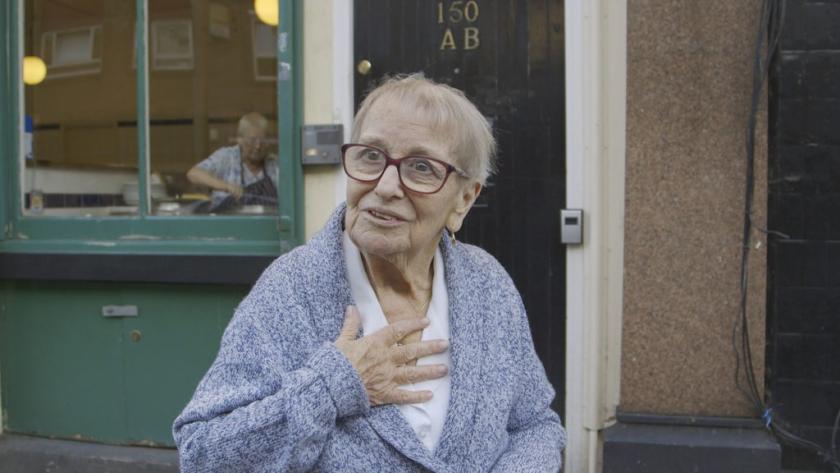Zed Nelson brings enormous humanity to this portrait of the changing identity of Hackney’s Hoxton Street as gentrification impinges on its long-established community. Shops that have been there for decades vanish overnight, fancy new pavement cafes spring up, and Nelson listens, patiently, to all who will talk to him, with a striking sense of their being able to speak in their own time, unprompted, unhurried. A Hackney resident most of his life, he worked on The Street over four years and the trust he obviously earned speaks to the best traditions of social documentary.
A couple of miles from the towers of the City, Hoxton has undergone the experience of many another London borough – once a community of apparently secure social bonds that seemed barely changed over the decades, its low property prices attracted first artistic types, then small developers, and finally the corporate investment that brought new skyscraper apartment blocks that seem almost absurdly out of place. “The idea of being born and living and dying in the same area as if it were a little enclosed village – those days have long gone,” says one longtime resident, and the sense of bewilderment speaks palpably.
 Though such stories of such community dislocation are often angled against the newcomers, on a human level Nelson remains even-handed in his presentation of those whose arrival has fractured a settled world. Locals may think that the last thing Hoxton needs is a contemporary art gallery with its trendy openings, but the story behind that particular microcosm – it’s connected to the Grenfell Tower fire, the sadness of which colours the second half of the film – is more complex. The appearance of a craft beer shop – 400 different types, run by a German, to boot – evinces ample scepticism from a neighbouring trader, until the two sit down together to discuss Brexit.
Though such stories of such community dislocation are often angled against the newcomers, on a human level Nelson remains even-handed in his presentation of those whose arrival has fractured a settled world. Locals may think that the last thing Hoxton needs is a contemporary art gallery with its trendy openings, but the story behind that particular microcosm – it’s connected to the Grenfell Tower fire, the sadness of which colours the second half of the film – is more complex. The appearance of a craft beer shop – 400 different types, run by a German, to boot – evinces ample scepticism from a neighbouring trader, until the two sit down together to discuss Brexit.
Nelson can’t have been expecting that particular political issue when he started filming in 2015 but its appearance crystallises many of the issues his film brings into play. For all the security of Hoxton’s previous fabric, there’s no shying away from the racism, the suspicion of the outsider that was part of it, feelings that were there as much when the black congregation of the local tabernacle appeared in the 1970s as they are today for those who arrived decades later.
But finally it isn’t a judgmental community, and therein lies the humanity of The Street. Nelson has the rare ability to drop in on characters with whom he’s obviously spent considerable time. There’s Colleen, unforgettable in her eighties, who has lived in the area throughout her life and seen it all: now, increasingly disoriented by ill health, she faces the end. At the local garage Errol has been there for three decades, but now he’s getting almost as many property developers trying to buy him out as he does loyal customers: his choice to relinquish the environment, unannounced, speaks more powerfully than words.
But, though the local bakery may have shuttered in the course of the film, we feel that the ebullient Joe and Kim at the 150-year-old pie-and-mash shop will be around for as long as it takes; Joe surely utters one of film’s best phrases when he comments that the area hasn’t been “gentrified, but poncified”. The keenness of character is exceptional, the director showing resolute flexibility in fashioning his material: our acquaintance with Serge, the philosophical Russian bomzh who lives under the canal bridge who gives The Street its tragic coda, resounds on a level that goes beyond the particularity of any local issue.
Nelson is better known as a photographer and his images often have a slightly formalised clarity of framing, with the redolent accompaniment of Rachel Portman’s lilting clarinet score (it was the title theme for Mike Leigh’s Life Is Sweet). “Sweet” is not what you would call Nelson’s picture of life on Hoxton Street, but it’s definitely rich, not least for the complexity of the emotions that the film assays. Melancholy, profound without a trace of pretension, it’s inspiring for the understated way in which it manages to capture the complicated flow of human life.
Watch the trailer for The Street















Add comment